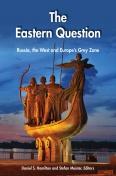With the exception of Ukraine, the prospects for the stabilization and democratization of the countries of wider Europe remain highly uncer- tain. All the countries in the region face major political and economic challenges due to their underdevelopment, lack of strong democratic traditions and structures, and the legacy of Soviet rule. Russia continues to see the region as a part of its sphere of “privileged interests” and remains intent on preventing the expansion of Western democratic ideas and norms into the post-Soviet space. Finally, and perhaps most importantly, the political and strategic context in Europe has signifi- cantly changed. Hostility to further enlargement of the EU has gained considerable ground in the last decade. At the same time, the EU faces a number of new challenges—the sovereign debt problem, growing pres- sures related to immigration and refugees, terrorism and the growth of right-wing extremism, which will increasingly preoccupy European leaders in the coming decade, leaving less time, interest and resources for stabilizing wider Europe.
F. Stephen Larrabee is a senior political scientist at the RAND Corporation, its Distinguished Chair Emeritus in European Security, and a member of the Pardee RAND Graduate School faculty. Before joining RAND, Larrabee served as vice president and director of studies of the Institute of East–West Security Studies in New York from 1983 to 1989, and was also a Distinguished Scholar in Residence from 1989 to 1990. From 1978 to 1981, he served on the U.S. National Security Council staff in the White House as a specialist on Soviet–East European affairs and East-West political-military relations. He is a prolific author and commentator with articles in a wide range of publications, from Foreign Affairs and the National Interest to The International Spectator. He has taught at Columbia, Cornell, New York, Johns Hopkins, Georgetown, and The George Washington universities, and at the University of Southern California. He received his PhD in political science from Columbia University.
Read the full article by clicking on the box at right.

